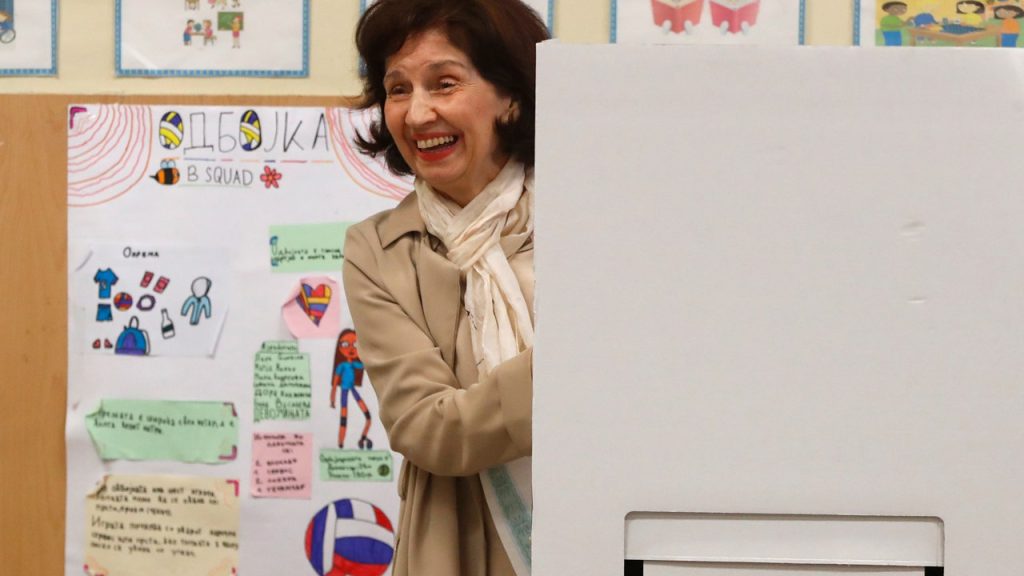North Macedonia held its first round of presidential voting, which will head to a runoff as no candidate secured enough votes to win outright in the election. The runoff will coincide with parliamentary elections on May 8. Near-full results showed a strong shift in favor of the candidate supported by the main opposition coalition, VMRO-DPMNE. Gordana Siljanovska Davkova was leading with nearly 40% of the votes, followed by incumbent President Stevo Pendarovski with around 20% and Foreign Minister Bujar Osmani with 13.6%. Turnout was just under 50%, and to win outright, a candidate needed to secure more than 50% of registered voters.
There are high hopes in North Macedonia that the incoming president will oversee the long-awaited entry of the country into the European Union. The small Balkan nation has been striving for EU membership for almost two decades without much progress to show for its efforts. Siljanovska Davkova and Pendarovski both agree on the country’s EU aspirations but have differing views on how to address Bulgaria’s demand for recognition of a Bulgarian ethnic minority in North Macedonia’s constitution. Bulgaria has threatened to block North Macedonia’s EU membership bid without this recognition.
Siljanovska Davkova, 70, emphasized her pro-EU stance as she addressed supporters outside the VMRO-DPMNE party headquarters in Skopje, describing the election as a new beginning and emphasizing the importance of North Macedonia aligning itself with Europe. Pendarovski expressed disappointment with the results but hoped to perform better in the second round, especially with the support of the ethnic Albanian minority, which makes up a quarter of the population. Seven candidates were running for the largely ceremonial presidential position, with a focus on EU accession, the rule of law, combating corruption, and poverty reduction.
Electoral commission head Aleksandar Dashtevski reported that voting proceeded smoothly, with only minor technical issues with biometric devices at some polling stations which were quickly resolved. North Macedonia has been an EU candidate since 2005, with membership talks commencing in 2022. However, the accession process is expected to be lengthy. Voter Stavre Temelkovski expressed optimism about North Macedonia’s future EU membership, hoping for a victory by a civic movement that aligns the country with pro-Western systems and initiates a healing process for a state that has been waiting for EU accession for nearly three decades.
The runoff between Siljanovska Davkova and Pendarovski will be crucial in determining North Macedonia’s future path towards EU membership, with the outcome likely to impact the country’s relations with neighboring Bulgaria and shape its progress towards fulfilling EU membership requirements. Both candidates have pledged to advance the country’s EU aspirations, but their differing approaches to the issue of ethnic minority recognition highlight the complex challenges that North Macedonia faces on its path to EU integration. The parliamentary elections held concurrently with the runoff will add another layer of significance to the electoral process, as the country seeks to navigate its way towards closer ties with the European Union while addressing internal concerns regarding governance, corruption, and economic development.


